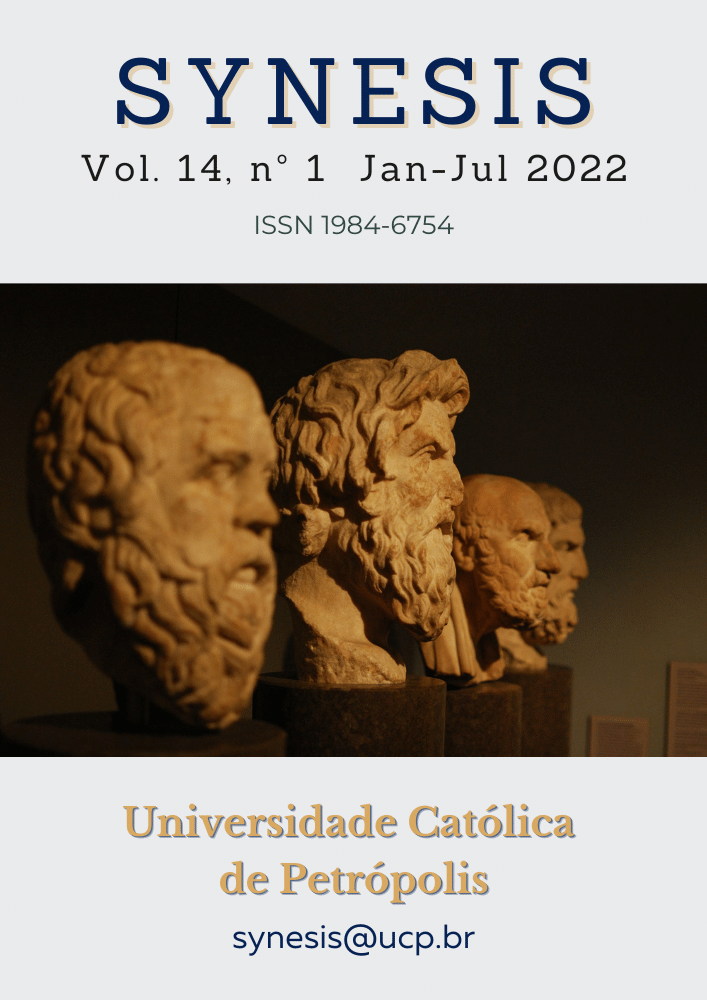Abstract
Politeness is a flexible system of strategies, since in the process of communication due to the changing communicative context, communicants are forced to adjust their communicative behavior, trying to make the most optimal choice of strategies and linguistic means in order to make the most favorable impression on their partner. Among the initial major works on the problems of politeness, it is worth noting studies of politeness in sociological and philosophical aspects. In foreign linguistics, a multifaceted study of the category of politeness began in the second half of the 20th century. With the emergence of new linguistic trends at the turn of the 20th and early 21st centuries, such aspects of the study of politeness as cognitive, linguocultural, pragmalinguistic, etc. are actualized. This article analyzes such approaches to the category of politeness, the Grice / E. Goffman paradigm, the semantic rule of R. Lakoff "Be polite!", politeness theory by P. Brown and S. Levinson, The principle of politeness and interpersonal maxims of G.N.Leech.
References
Alpatov, Vladimor Mihaylovich. (2008). O yazikovoy kartine mira yaponsev. İstoricheskaya psixologiya i sotsiologiya istorii. 1:133-141.
Arndt, Horst, Janney, Richard W. (1992). İntraculturaltact versus interculturaltact. Politeness in Language: Studies in its History, Theory and Practice. Berlin: Mouton de Gruyter.
Austin, John Langshaw. (1962). How to Do Things with Words. Oxford: Oxford University Press.
Belyayeva, Yelena. (1990). Prinsip vejlivosti v voprositelnix rechevix aktax. İnostrannie yaziki v shkole 1: 43-47.
Brown, Penelope and Levinson, Stephen. (1987). Politeness: Some universals in language usage. Cambridge: Cambridge University Press.
Christie, Christine. (2005). Politeness and linguistic construction of gender in parliament. An analysis of transgression and. apology behavior: Linguistic Politeness and Context. Loughborough University, UK.
Elias, Schwartz. (1970). Notes on Linguistics and Literature. In College English, Vol. 32: 184-190.
Fedorova A.L. Pereosmislivaya G.P. (2008). Graysa, ili o nekotorix variatsiyax na temu kanona rechevogo; obsheniya. Yazikovie yedinisi v paradigmatike i sintagmatike: Sbornik nauchnix statey: V 2 ch. Ch. İİ. Ufa: RİS BashGU, S. 116-120.
Formanovskaya, Natalya İvanovna. (1987). Russkiy rechevoy etiket: lingvisticheskiy i metodicheskiy aspekti. Moskva: İzdatelstvo «Russkiy yazik».
Formanovskaya, Natalya İvanovna. (2007). Obrasheniya s tochki zreniya kommunikativno-pragmaticheskogo podxoda. Moskva: Nauka.
Goffman, Erving. (1972). On Face-Work: an Analysis of Ritual Elements in Social İnteraction. Communication in Face-to-Face İnteraction. Harmondsworth: Penguin.
Goldin, Valentin. (1983). Rech i etiket. Moskva: Prosveshenie. - 109 s.
Goldin, Vasılıy Yeldovich. (1987). Obrashenie: teoreticheskie problem. Saratov: İzd. Saratovskogo universiteta.
Grice, Paul. (1975). Logic and Conversation. New York: Academic Press.
Karasik, Vladimir İlich. (2002. Yazik sotsialnogo statusa. Moskva: İTDGK «Gnozis».
Kasper, Gabriele. (1990). Linquistic politeness: Current research issues. Journal of Pragmatics 14, 2: 193-218.
Koltunova, Mariya Viktorovna. (2005). Konvensii kak pragmaticheskiy faktor: delovogo dialogicheskogo obsheniya. Moskva: Akad. gumanitar, issled.
Lakoff George. (1987). Metafori, kotorimi mi jivem. Yazik i modelirovanie sotsialnogo vzaimodeystviya. Moskva.
Lakoff, Robin. (1973). The logic of politeness; or minding your p's and q's.’ Papers from the Ninth Regional Meeting of the Chicago Linguistic Society. Chicago: Chicago Linguistic Society.
Larina, Tatyana Viktorovna. (2009). Kategoriya vejlivosti i stil kommunikasii: Sopostavlenie angliyskix i russkix lingvokulturnix tradisiy. Moskva: Yaziki slavyanskix kultur.
Leech, Geoffrey N. (1983). Principles of Pragmatics. London. New-York: Longman.
Miloserdova, Yelizaveta Vladimirovna. (1991). Kak vajno bit vejlivim, govorya na inostrannom yazike. İnostrannie yazike v shkole, 4: 104-106.
Ratmayr, Renate. (2009). Pragmaticheskie klishe «novoy russkoy vejlivosti»: ix upotreblenie i otsenka. Stereotipi v yazike, kommunikasii i culture. Moskva: RGGU.
Romanova, İrina. (2003). Konsept «vejlivost» i yego ob’ektivatsiya v russkom yazike. Kommunikativnoe povedenie. Vip. 17. Voronej: İzd-vo «İstoki».
Sokovnin, Vladimor Mihaylovich. (1973). O prirode chelovecheskogo obsheniya (opit filosofskogo analiza). Frunze: Mektep.
Solovev, Eduard Yakovlevich. (2001). Sovremenniy etiket i delovoy protokol. Moskva: İzdatelstvo «Os-89».
Solovyev, Eduard Yakovlevich. (1999). İnterpretatsiya fenomena vejlivosti v sovremennoy lingvisticheskoy literature.Yazik. Kultura. Deyatelnost: Vostok - Zapad. - Naberejnie Chelni: İnstitut upravleniya.
Sternin, İosif Abramovich. (1996). Kommunikativnoe povedenie v strukture nasionalnoy kulturi. Etnokulturnaya spesifika yazikovogo soznaniya. Moskva: İn-t yazikoznaniya.
Sternin, İosif Abramovich. (2003). Problemi opisaniya vejlivosti kak kommunikativnoy kategorii. Kommunikativnoe povedenie. Vejlivost kak kommunikativnaya kategoriya. Voronej: İzd-vo «İstoki».
Umanes, Lyubov. (2011). Verbalnaya reprezentatsiya vejlivosti v sfere delovogo obsheniya :na materiale sovremennogo nemeskogo. PhD Dissertation. İnstitut yazikoznaniya RAN.
Vasilyeva, Oksana Aleksandrovna. (2000). Realizatsiya maksim vejlivosti v angliyskom i russkom dialogax. PhD Dissertation. İnstitut yazikoznaniya RAN.
Xarchenko, Yelena Vladimirovna. (2005). Osobennosti izucheniya yazikovogo soznaniya nositeley korporativnoy kulturi. Obshenie. Yazikovoe soznanie. Mejkulturnaya kommunikatsiya. Kaluga: KGPU im. K.E. Siolkovskogo.
Zemskaya Yelena. (1994). Kategoriya vejlivosti v kontekste rechevix deystviy. Logicheskiy analiz yazika. Yazik rechevix deystviy. Moskva: Nauka.

This work is licensed under a Creative Commons Attribution-NonCommercial-NoDerivatives 4.0 International License.
Copyright (c) 2022 Synesis (ISSN 1984-6754)

